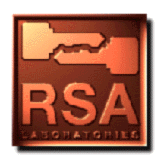

RSA is the most widely used public-key cryptosystem today and has often been called a de facto standard. Regardless of the official standards, the existence of a de facto standard is extremely important for the development of a digital economy. If one public-key system is used everywhere for authentication, then signed digital documents can be exchanged between users in different nations using different software on different platforms; this interoperability is necessary for a true digital economy to develop. Adoption of RSA has grown to the extent that standards are being written to accommodate RSA. When the U.S. financial industry was developing standards for digital signatures, it first developed ANSI X9.30 to support the federal requirement of using the Digital Signature Standard (see Question 26). They then modified X9.30 to X9.31 with the emphasis on RSA digital signatures to support the de facto standard of financial institutions.
The lack of secure authentication has been a major obstacle in achieving the promise that computers would replace paper; paper is still necessary almost everywhere for contracts, checks, official letters, legal documents, and identification. With this core of necessary paper transaction, it has not been feasible to evolve completely into a society based on electronic transactions. Digital signatures are the exact tool necessary to convert the most essential paper-based documents to digital electronic media. Digital signatures make it possible, for example, to have leases, wills, passports, college transcripts, checks, and voter registration forms that exist only in electronic form; any paper version would just be a "copy" of the electronic original. All of this is enabled by an accepted standard for digital signatures.